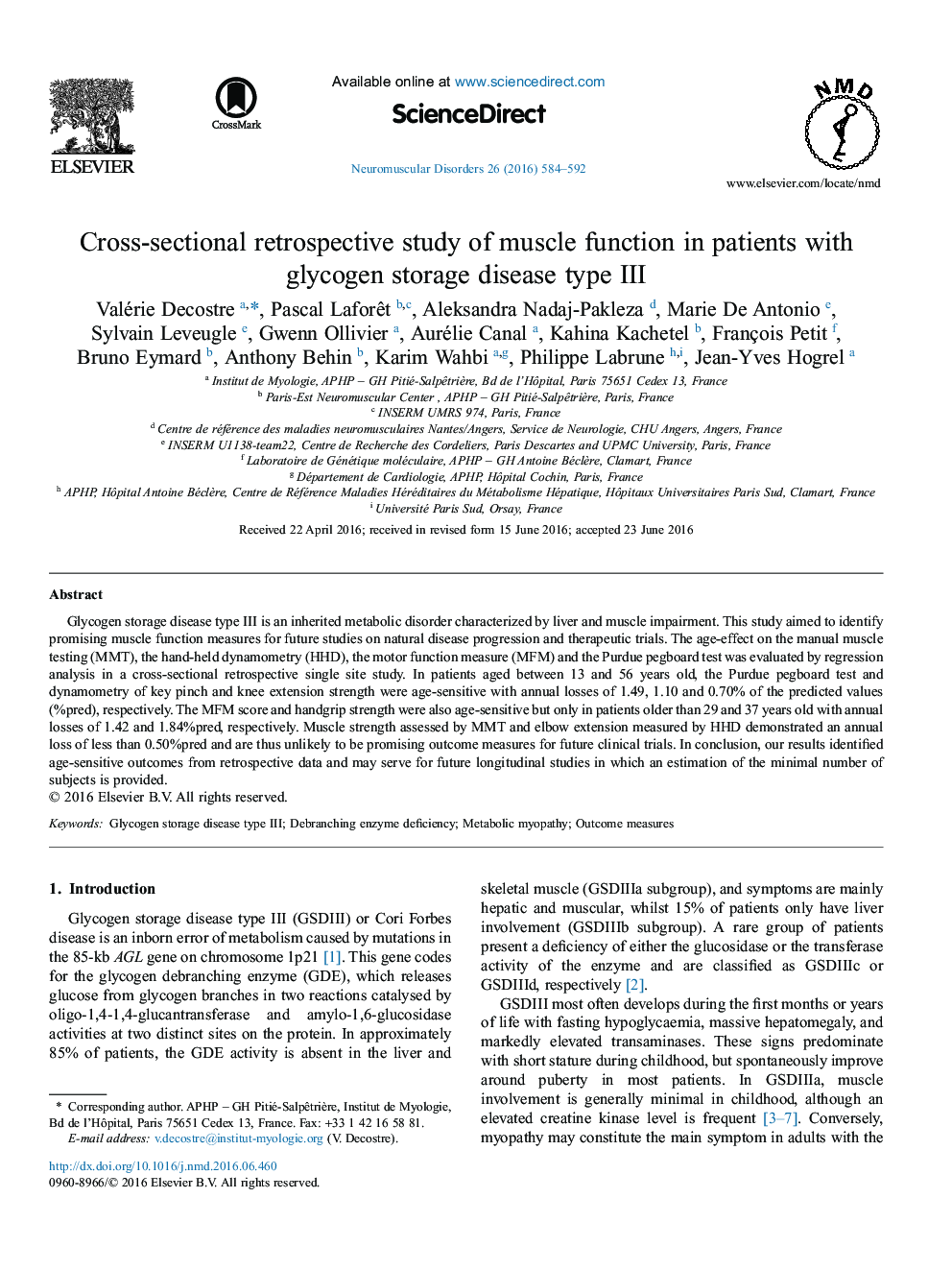| Article ID | Journal | Published Year | Pages | File Type |
|---|---|---|---|---|
| 5632263 | Neuromuscular Disorders | 2016 | 9 Pages |
â¢Age-related muscle outcomes in glycogen storage disease type III were analysed.â¢Purdue test, key pinch and knee extension strength are the most age-dependent tests.â¢Handgrip strength and the MFM become age sensitive outcomes after the third decade.â¢MMT and elbow extension strength are not sensitive outcomes in GSDIII patients.â¢The minimal number of subjects was calculated for future longitudinal trials.
Glycogen storage disease type III is an inherited metabolic disorder characterized by liver and muscle impairment. This study aimed to identify promising muscle function measures for future studies on natural disease progression and therapeutic trials. The age-effect on the manual muscle testing (MMT), the hand-held dynamometry (HHD), the motor function measure (MFM) and the Purdue pegboard test was evaluated by regression analysis in a cross-sectional retrospective single site study. In patients aged between 13 and 56 years old, the Purdue pegboard test and dynamometry of key pinch and knee extension strength were age-sensitive with annual losses of 1.49, 1.10 and 0.70% of the predicted values (%pred), respectively. The MFM score and handgrip strength were also age-sensitive but only in patients older than 29 and 37 years old with annual losses of 1.42 and 1.84%pred, respectively. Muscle strength assessed by MMT and elbow extension measured by HHD demonstrated an annual loss of less than 0.50%pred and are thus unlikely to be promising outcome measures for future clinical trials. In conclusion, our results identified age-sensitive outcomes from retrospective data and may serve for future longitudinal studies in which an estimation of the minimal number of subjects is provided.
